
Developer: Picogram
Publisher: Rose City Games
Platform: Switch, PC
Tested on: Switch
Garden Story – Review
During Nintendo’s recent Indie Showcase, Garden Story was announced as a surprise release for the Switch. The pastel-coloured RPG, developed by Picogram and published by Rose City Games didn’t just look adorable, but the trailer also made it seem like there was a decent amount of gameplay depth present as well. It shouldn’t come as a surprise that we were eager to dive into Garden Story’s world, and now that we’ve spent some time with the game, it’s time to share our findings with you.
Story
If you were to strip Garden Story’s narrative down to its bare foundation, you’d be confronted with a very familiar looking framework. It’s your typical story about an unlikely hero coming of age and fulfilling his destiny to save the world from a terrible threat. Thanks to fantastic characterisation and a clever setting, however, Garden Story manages to breathe new life into an overdone trope. The hero in this case is Concord, a little grape that lives in the Grove, and the threat is a mysterious entity known as the Rot, which is infecting the world. When Garden Story begins, Concord is living a happy but secluded life in the Kindergarden. Our protagonist is forced to take up the mantle of Guardian when the previous Guardian decides to abandon the Grove. It’s now up to Concord to deal with the damage that the Rot has done in each of the four towns that make up the Grove.
The events that unfold during Concord’s quest don’t thread new paths, but the game doesn’t feel like a retread of familiar tropes thanks to the plethora of charming characters that you encounter, ranging from sentient berries to talking frogs. Although these aren’t really fleshed out through intricate backstories, the writing for the characters is excellent and it’s easy to grow fond of the NPCs as well as Concord himself. Despite the main “end of the world” arc, Garden Story’s tone is light-hearted, and we found ourselves chuckling at several of the jokes that were thrown our way. It was the quirky side stories and great characterization that made us care for this world and that motivated us to keep going.
Graphics
At first glance, the simplistic pixel art that makes up Garden Story’s world and characters might not seem particularly impressive, but there is more to the visuals than meets the eye. Every corner of the Grove is filled to the brim with tiny visual details that really bring the world to life. The game features a day/night cycle that features a wide array of colors, as well as dynamic lighting while you’re exploring the various dungeons. Add to this that each of the four towns that make up the Grove has its own color palette, based around the four seasons, and you’ve got a gorgeous-looking game with adorable aesthetics. There are a variety of unlockable cosmetics present for you to change up Concord’s appearance as well, which is a nice little touch.
Sound
What Garden Story lacks in voice acting and sound effects is easily compensated for by Grahm Nesbitt’s fantastic OST. The beautiful music (which you can listen to here) sets a relaxing atmosphere and is well worth seeking out even if you have no interest in playing through Garden Story. The only flaw we found here was that the music didn’t convey the right mood during the boss battles, which can be quite intense. We would’ve preferred something with a little more gravitas compared to what we were being offered up -especially since every boss fight uses the same music- but that’s a fairly minor nitpick all things considered.
Gameplay
Although Garden Story’s title brings to mind games like Harvest Moon or Stardew Valley, you’re looking at an old-school Zelda-like RPG, rather than a farming sim. As you’d expect there is a veritable plethora of things to do in the Grove, besides playing through the main story. The game ticks all the boxes on the classic RPG checklist: There’s the ubiquitous fishing mechanics. There are side quests. There are a variety of bosses waiting for you to take them down in different ways. The four seasonal towns that Concord visits on his quest aren’t just distinct from each other visually, but also in the way they have been affected by the Rot. Concord has to deal with the damage in a different manner in each town, but all in all, Garden Story doesn’t *really* bring anything new to the table. That’s not necessarily a bad thing though, and it’s clear that developer Picogram understands what made its predecessors great in the first place, making Garden Story a proper love letter to the genre. The game is being advertised as a relaxing and casual experience. This is correct, and although this does mean that Garden Story’s difficulty level isn’t all that high, what you’re getting here is still a game that has plenty to offer thanks to a wide variety of content and a fantastic atmosphere.
The game is not without its flaws though. According to several early reports, there were a few game-crashing bugs out there, though we didn’t encounter these personally and from what we understand, these were patched fairly quickly. What we did have issues with weren’t bugs, but poor design choices, in particular with inventory management. Garden Story is a game where resource grinding is a core element, as it relies on you gathering ingredients to craft a variety of potions. These are then used in different ways, either to complete quest objectives or to boost Concord. However, Concord’s inventory space is pitifully small, and although there is storage space available in the village, you are only able to store 15 of an ingredient, which seems like an arbitrarily small amount. The limits in place here make grinding for ingredients incredibly tedious. It’s an aspect of the game that really hurts the overall experience. The game relies on an extensive library of potions and associated bottles, so having a less frustrating inventory management system and a more generous ingredient storage allowance would’ve made for a more fun game.
That’s not to say that there isn’t any fun to be had here. Garden Story isn’t a game about grinding ingrediënts, despite its farm-sim-like appearance. Instead, the core experience is still a Zelda-esque RPG that sees you go on dungeon crawls and take on sidequests from the village message board at your leisure. The dungeons themselves are surprisingly varied, ranging from a sewer to a library, and everything in between. As you’d expect, dungeons also offer puzzles and these can be genuinely confusing -in a good way. The various boss battles are enjoyable as well, although the first boss threw us a curveball and was considerably more difficult than the subsequent ones. Even so, while Concord might look like a cute little grape, he is surprisingly adept at killing things, in part thanks to his ever-expanding arsenal of murder tools. You start out with a pick, but as you progress, you’ll unlock a variety of different weapons, including a massive hammer that causes a shockwave around you when you hit things with it. His combat prowess is further amplified through special skills that you obtain as you play through Garden Story.
Special skills are not obtained by leveling up, but instead by performing simple tasks tied to memories. These memories are linked to Concord’s Guardian predecessors, as you’re essentially copying the abilities of those that attempted your quest previously and failed. Assimilating these skills typically requires you to do stuff like drink a certain number of Dew potions or kill a specific type of enemy x number of times, though specific in-game rewards, like discovering a Guardian’s grave, will also grant you a new ability. You can only equip a limited number of abilities to your ability slots, though you are free to swap them around as often as you like. Some abilities increase your HP and fighting prowess, while others aid you in gathering rare materials. It’s a clever and intuitive system, although constantly swapping abilities depending on the task at hand can get a bit tedious at times. Fortunately, this is only a temporary problem, as once you’ve gotten over the item grind, you can simply stick with the best possible buffs and make your way to the final boss of the game.
Conclusion
Garden Story is a delightful little RPG that is well worth seeking out if you’re a fan of old-school RPG games. The colorful world and endearing characters successfully draw you in, and even though the game isn’t without its flaws -we’re looking at you, inventory system- it’s very fun to play through. One final word of warning though: while we didn’t encounter any game-breaking bugs during our time with Garden Story, it might be worth checking to see if you’re running the latest version of the game so that it’s all patched up. After all, it’s better to be safe than sorry.
Garden Story - Review,2 Comments
Leave a Reply
You must be logged in to post a comment.

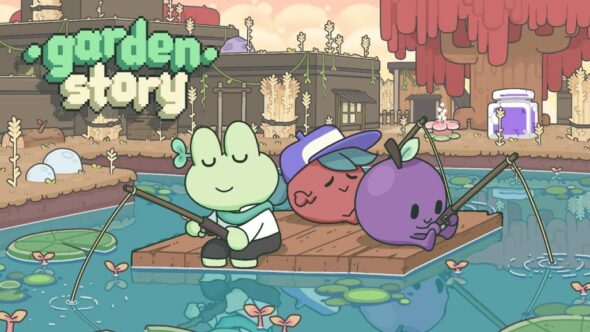
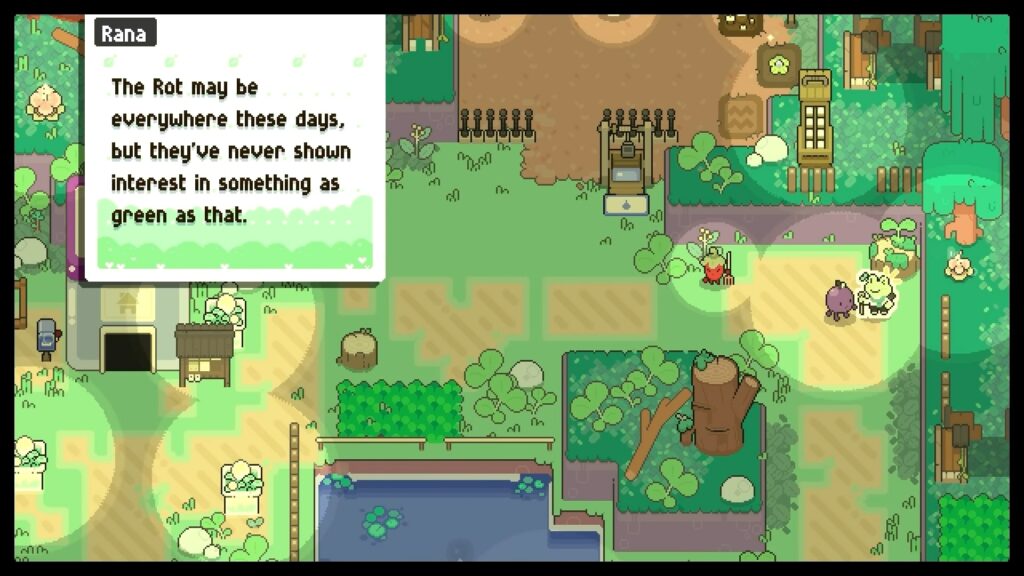
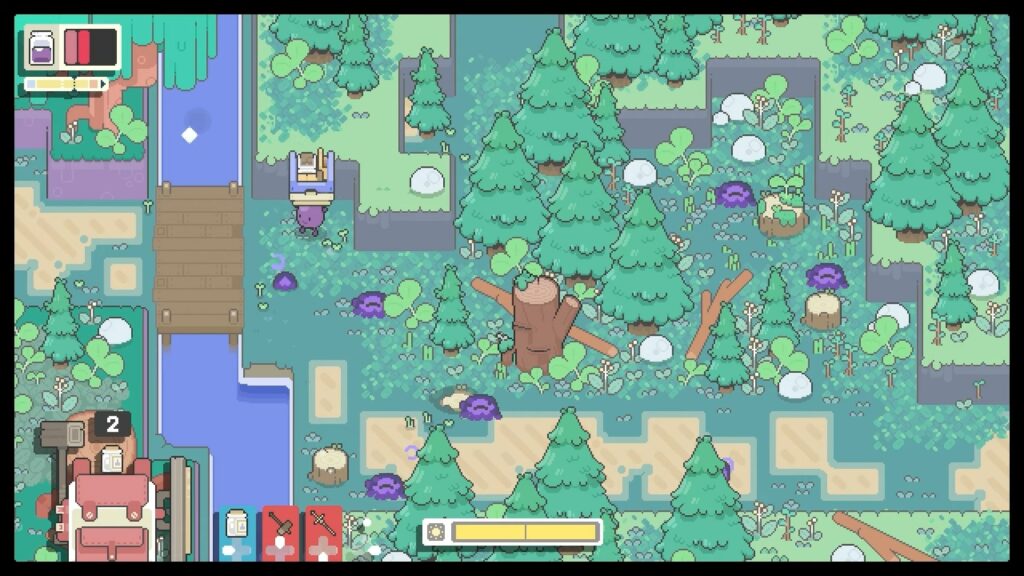
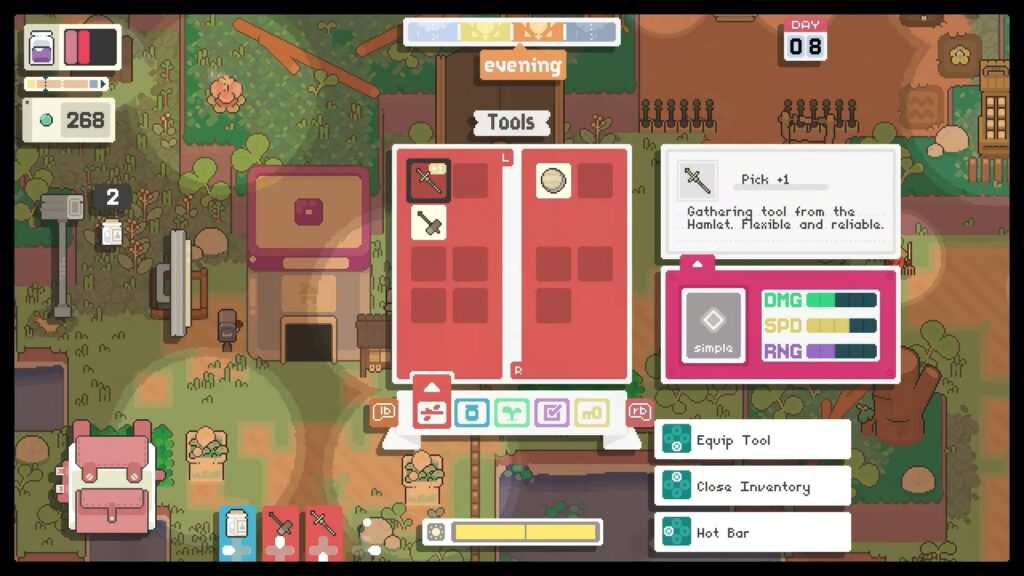
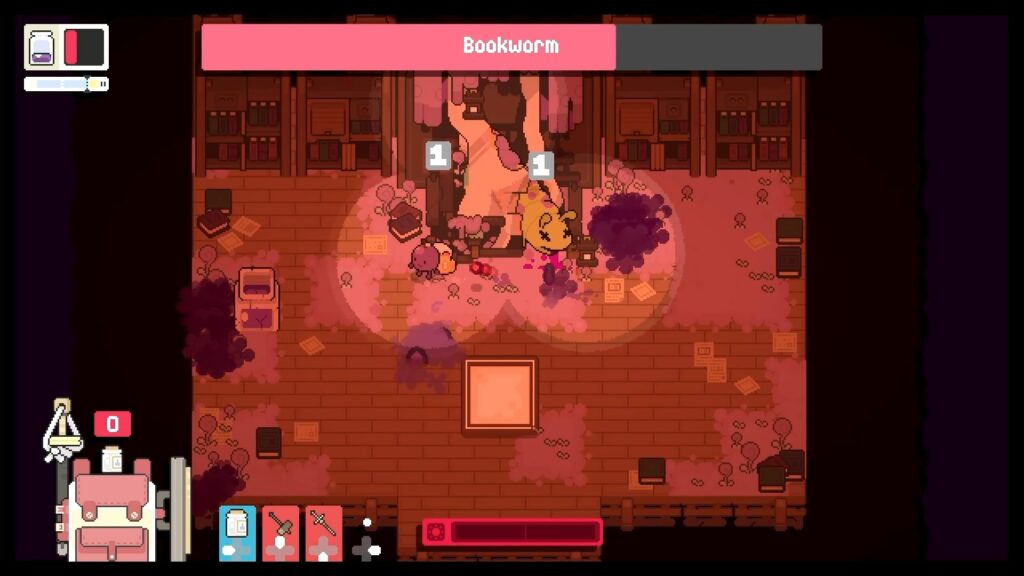
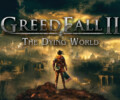



[…] only just looked at Garden Story, and already we’ve got another surprise drop from the Nintendo Indie Showcase for you. Route […]
[…] Since then, many games have tried to copy what made SV so special, from Graveyard Keeper to Garden Story, but none have succeeded in taking the crown from ConcernedApe’s masterpiece. The latest attempt […]